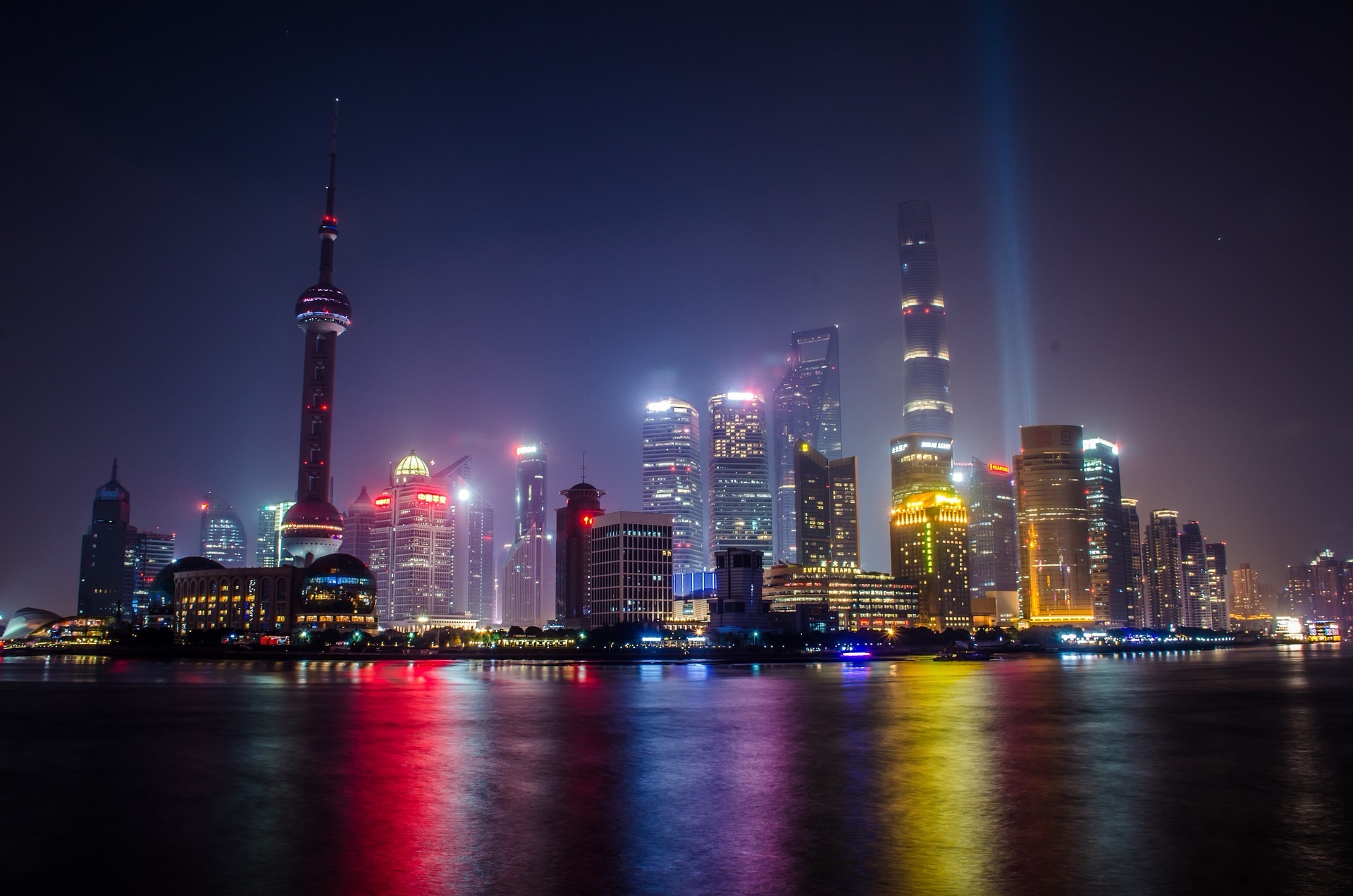China is one of the world’s most fascinating travel destinations, with its rich history, diverse cultures, ancient landmarks, and bustling modern cities. From the iconic Great Wall and Forbidden City to the cutting-edge architecture of Shanghai, China offers a blend of tradition and modernity that can amaze and overwhelm first-time visitors. However, traveling to China requires some preparation, as the cultural norms, language, and everyday practices can be very different from what Americans are used to. Here are 19 important things Americans should know before visiting China to ensure a smooth and enjoyable trip.
1. China Is Vast and Diverse
China is a huge country, both in terms of land area and cultural diversity. It’s home to over 1.4 billion people and more than 50 different ethnic groups, each with their own languages, traditions, and cuisines. Major cities like Beijing, Shanghai, Guangzhou, and Chengdu are modern and fast-paced, while rural areas offer a slower, more traditional way of life.
From the deserts of Xinjiang to the misty mountains of Guangxi and the bustling markets of Xi’an, China’s landscapes are incredibly diverse. When planning your trip, it’s important to recognize that no two regions are the same, and exploring beyond the major cities can give you a deeper appreciation of China’s cultural richness.
2. Visa Requirements
Americans need a visa to enter China, and it’s important to apply well in advance of your trip. Most travelers will require a tourist visa (L visa), which allows stays of up to 30 days. To apply for a visa, you’ll need a valid passport, a completed visa application, and possibly proof of a return ticket and hotel reservations.
You can apply for a visa at your nearest Chinese consulate or embassy, or use a visa service to help with the process. Be sure to check for the latest visa requirements, as these can change.
3. Language Barriers: Learn Basic Mandarin Phrases
While China has several languages and dialects, Mandarin Chinese is the official language spoken across the country. In major cities like Beijing and Shanghai, you may find English speakers in hotels, tourist attractions, and international businesses, but outside of these areas, English is less common.
Learning basic Mandarin phrases can be incredibly helpful for navigating everyday interactions. Phrases like “Ni hao” (Hello), “Xie xie” (Thank you), and “Zai jian” (Goodbye) will go a long way in showing respect to locals. It’s also a good idea to download a translation app like Google Translate to help with more complicated conversations, especially when using taxis or ordering food.
4. The Internet and Censorship
The internet in China is heavily regulated by the government, and many popular websites and apps that are widely used in the U.S. are blocked, including Google, Facebook, Instagram, WhatsApp, and Twitter. This is often referred to as the Great Firewall of China.
To access these websites, you’ll need to use a Virtual Private Network (VPN), which allows you to bypass internet restrictions. It’s important to download and install a VPN before arriving in China, as most VPN websites are also blocked once you’re in the country. There are several reliable VPN services, but be sure to research and choose one that works well in China, as not all do.
5. Cashless Payments Are the Norm
China has largely moved to a cashless society, especially in cities. Instead of using credit cards or cash, most people pay with mobile payment apps like WeChat Pay and Alipay. While some international credit cards (like Visa and Mastercard) are accepted in hotels and international chains, many smaller restaurants, shops, and taxis may only accept mobile payments.
It can be challenging for foreign visitors to set up these payment apps because they often require a Chinese bank account. However, some international versions of WeChat Pay are now available. It’s also a good idea to carry Chinese yuan (RMB) for smaller transactions, especially when visiting rural areas or local markets.
6. Public Transportation Is Efficient and Affordable
China has one of the most efficient public transportation systems in the world. Cities like Beijing, Shanghai, and Guangzhou have extensive subway networks that are cheap, clean, and easy to navigate, with signs and announcements in both Chinese and English. Buses are also widely available and very affordable, though they may be harder to navigate for non-Chinese speakers.
For long-distance travel, China’s high-speed rail network is fast, reliable, and a great way to travel between cities. Trains can reach speeds of over 300 km/h (186 mph), and routes like Beijing to Shanghai can be completed in just over four hours. Booking tickets in advance is recommended, especially during holidays or peak travel times.
7. Toilets: Be Prepared for Squat Toilets
While most hotels, restaurants, and public places in major cities offer Western-style toilets, you’ll likely encounter squat toilets in many places, especially in rural areas or older public facilities. It’s a good idea to carry toilet paper and hand sanitizer with you, as many public restrooms don’t provide these essentials.
Western-style toilets are becoming more common, but it’s always wise to check before heading into a restroom. Many public restrooms are free to use, but some may charge a small fee, so it’s good to keep small coins or cash on hand.
8. Cultural Etiquette: Saving Face Is Important
In China, saving face (mianzi) is an important cultural concept, which means avoiding embarrassment or confrontation in public settings. Politeness, humility, and respect for others are highly valued, and it’s important to remain calm and composed in interactions, even if things don’t go as planned.
Raising your voice, showing frustration, or being overly direct can cause embarrassment and is considered disrespectful. When in doubt, practice politeness and patience, and avoid putting someone in a position where they might lose face. Even in business or social settings, diplomacy and respect are key to smooth interactions.
9. The Food Is Diverse and Regional
Chinese cuisine is incredibly diverse and varies widely by region. The food in Sichuan is known for its spiciness, with dishes like hot pot and mapo tofu, while Cantonese cuisine (from Guangdong) is famous for its dim sum and milder flavors. Beijing is home to Peking duck, and Shanghai is known for its xiaolongbao (soup dumplings).
Don’t be afraid to explore street food, which is often some of the most delicious and authentic fare in China. Noodle stands, dumpling stalls, and skewer vendors are common in every city, and trying these local delicacies is an integral part of the travel experience. Be adventurous but cautious—some dishes may be more exotic than you expect!
10. Tap Water Isn’t Safe to Drink
It’s generally not safe to drink tap water in China, so you’ll need to stick to bottled water or boiled water. Bottled water is widely available and inexpensive, and most hotels provide bottled water in rooms. When dining in restaurants, ask for bottled or boiled water instead of tap water.
Many locals drink hot water or tea with their meals, as boiling water is a standard practice to ensure it’s safe. In some regions, even brushing your teeth with tap water is discouraged, so use bottled water for brushing if you want to be extra cautious.
11. The Concept of Personal Space Can Be Different
China is densely populated, especially in major cities, and the concept of personal space may differ from what Americans are used to. Public transportation, especially subways and buses, can be very crowded, and people may stand or sit closer to you than you might expect.
It’s also common for people to skip lines or push ahead in crowded places, such as train stations or markets. While this may seem rude by American standards, it’s a more accepted practice in China, especially in busy areas. Stay calm and adapt to the flow of the crowd when necessary.
12. Tipping Is Not Expected
Unlike in the U.S., tipping is not a common practice in China. In restaurants, taxis, and most service industries, tipping is neither expected nor customary. In fact, leaving a tip can sometimes confuse the staff, as it’s not part of the local culture.
However, tipping in international hotels or for tour guides and drivers in tourist-heavy areas has become more common, and small tips may be appreciated. If you’re unsure whether tipping is appropriate, it’s always a good idea to check with your hotel or tour operator beforehand.
13. Respect for Elders and Authority
Respect for elders and authority figures is deeply ingrained in Chinese culture, rooted in Confucian values. When interacting with older individuals, it’s important to show deference and politeness. For example, offering your seat to an elderly person on public transportation is seen as a sign of respect.
In business and professional settings, addressing people by their titles and last names is the norm. Handshakes are the common form of greeting, but don’t be surprised if people greet you with a slight nod or bow, especially in more formal situations.
14. Traffic Can Be Chaotic
In large cities like Beijing and Shanghai, traffic can be overwhelming, and pedestrian rules aren’t always strictly followed. Cars, bicycles, scooters, and pedestrians all share the road, and vehicles may not always yield to pedestrians, even at crosswalks. Be cautious when crossing streets and pay attention to traffic signals.
It’s common for scooters and bicycles to drive on sidewalks, so always be aware of your surroundings. If you’re not comfortable navigating traffic, stick to public transportation, which is generally safer and more efficient.
15. Air Quality in Major Cities
Air quality in some Chinese cities, especially in Beijing and Shanghai, can be poor due to pollution. On days when pollution levels are high, the Air Quality Index (AQI) may recommend wearing a face mask if you’re spending extended time outdoors. While air pollution has improved in recent years, it’s still important to check the AQI before heading out, especially if you have respiratory issues.
Many hotels and public buildings have air purifiers, and masks are widely available at pharmacies. If you’re sensitive to pollution, try to plan outdoor activities on days when the air quality is better, and consider bringing a mask with you as a precaution.
16. Be Aware of Major Holidays
China has several major holidays, the most important of which is Chinese New Year (Spring Festival), which usually takes place in late January or February. During this time, hundreds of millions of people travel across the country to visit family, making transportation systems incredibly crowded. Many businesses and tourist attractions may be closed or have reduced hours.
Other holidays, such as National Day (October 1) and the Mid-Autumn Festival, also see an increase in domestic travel and crowds. If you plan to visit during a holiday, book your accommodation and transportation well in advance and be prepared for larger crowds at major tourist sites.
17. Bartering in Markets
In many of China’s markets and street stalls, especially in places like the Silk Market or Pearl Market in Beijing, bartering is expected. Vendors often start with a high price, and it’s up to you to negotiate down. Bartering can be a fun experience, but it requires patience and a sense of humor.
Start by offering about 50-60% of the original price and be prepared to meet somewhere in the middle. If you’re not happy with the price, don’t be afraid to walk away—vendors will often call you back with a better offer. Be polite and friendly during negotiations, as this can help you get a better deal.
18. Health and Safety Precautions
China is generally a safe country for travelers, but it’s always important to take basic health and safety precautions. Make sure you have the necessary vaccinations before traveling, and consider getting travel insurance that covers medical emergencies.
If you have any dietary restrictions or food allergies, it’s a good idea to learn how to communicate this in Chinese or carry a card that explains your needs. While Chinese cuisine is generally safe, be cautious with street food and always eat at places that appear clean and busy. Carry a small first-aid kit and any essential medications with you, as not all over-the-counter medications are easily available in China.
19. China’s History and Politics
China’s long and complex history has shaped its current political landscape, and visitors should be respectful of sensitive topics like Tiananmen Square, Tibet, and Taiwan. While it’s common for tourists to visit historical sites like Tiananmen Square, be aware that discussing the 1989 protests or openly criticizing the government can lead to uncomfortable situations, as these topics are considered highly sensitive.
It’s also important to avoid using VPNs or social media to discuss political matters while in China. Stick to the cultural and historical aspects of your trip, and if these topics do come up in conversation with locals, remain respectful and avoid engaging in political debates.
Conclusion
China is a destination like no other, offering a mix of ancient traditions, modern innovations, and breathtaking landscapes. By understanding the country’s cultural norms, practical travel tips, and unique challenges, you can have a more fulfilling and enjoyable experience. Whether you’re hiking the Great Wall, exploring the Terracotta Army, or savoring local street food, your journey through China will be one of discovery and unforgettable experiences.




